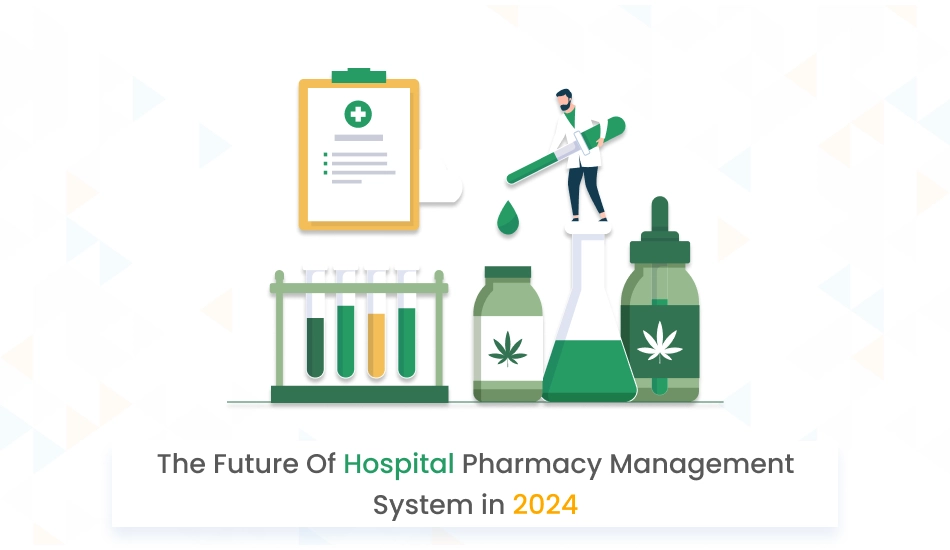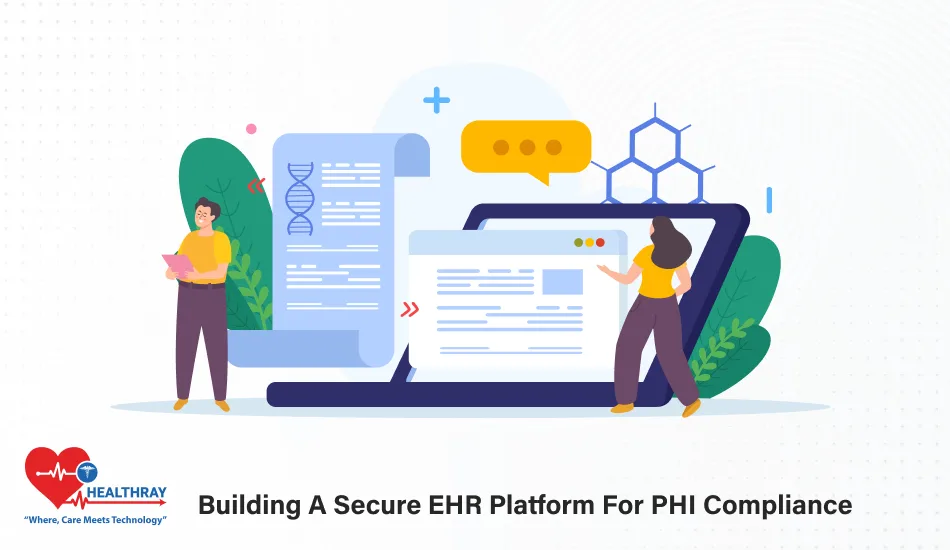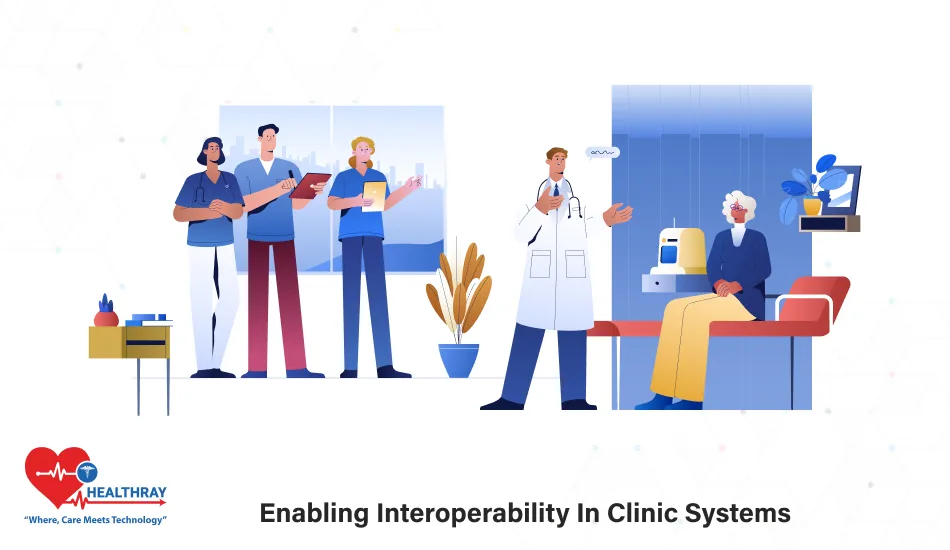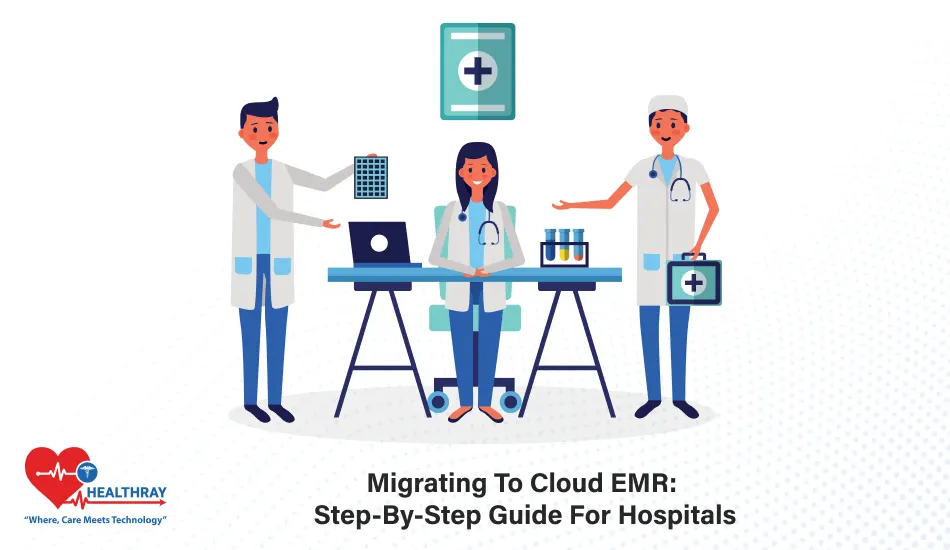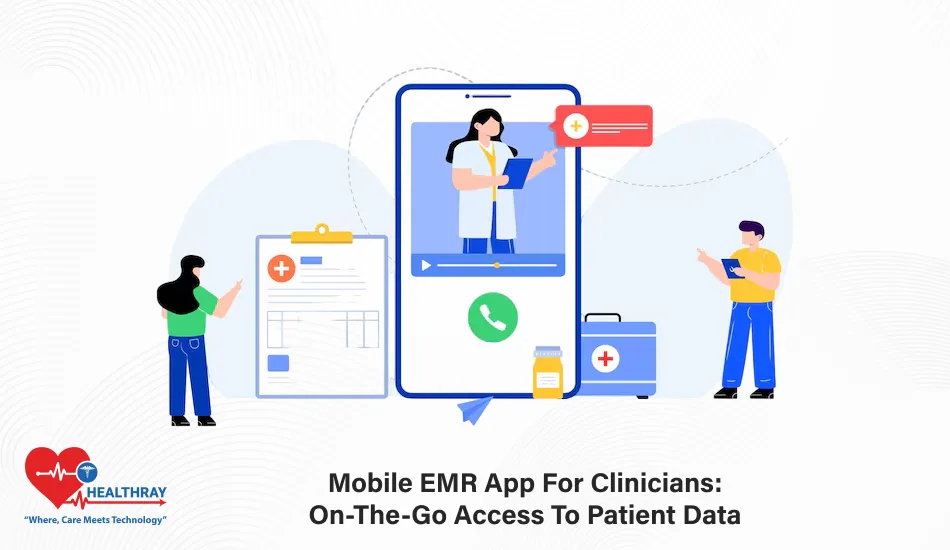Quick Summary: Hospital pharmacy management systems in 2024 will utilize cutting-edge technologies such as artificial intelligence (AI) and machine learning (ML). Hence these technologies aim to streamline pharmaceutical operations and enhance patient safety. They also ensure regulatory compliance and adaptability to evolving healthcare demands.
Introduction
The digital healthcare sector might grow to an astounding $660 billion by 2025. There is a greater demand than ever for specialist technological solutions. Pharmacy management software is a vital instrument for improving operational effectiveness, raising client happiness, and spurring revenue development. It is central to this revolution. Therefore this technological marvel is revolutionizing every aspect of healthcare service excellence, from inventory management to patient education and engagement.
The exponential development of electronic medical records is all about technologies such as virtual health and artificial intelligence. Moreover, the role of pharmacy and the pharmacist within the healthcare ecosystem is changing. However, how will the role of the pharmacy change within the larger care team as advances progress? Additionally, how will the pharmacist and hospital pharmacy management software adapt to these changes? Lets understand it now!
Overview of Pharmacy Management System
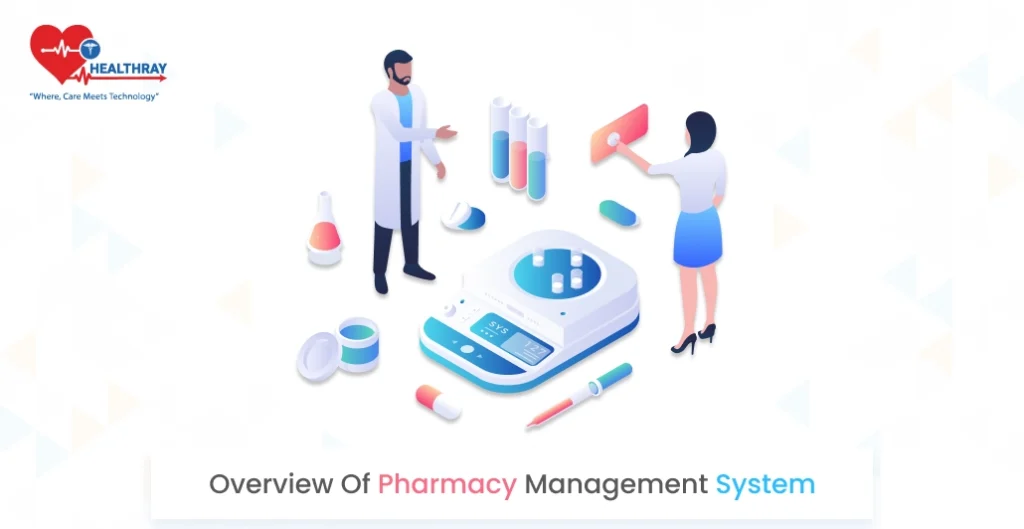
Why is hospital pharmacy management so important in the medical field? The American healthcare industry has been grappling with a crucial question for over thirty years: How can we further improve patient outcomes and the quality of care? The Hippocratic Oath, which states, “First, do no harm,” forms the foundation of medicine. Therefore, this question is more than simply rhetoric. According to the Agency for Healthcare Research and Quality (AHRQ), this means shielding patients from medical care injuries that one can avoid, with pharmaceutical errors posing a significant risk.
These are more complex typos! They are the main reasons patients in hospital suffer avoidable injuries and negative consequences. A stunning fact from US FDA is more than 100,000 reports of pharmaceutical errors happen in the US alone each year. These have far-reaching effects on patient safety, the financial viability of medical practices, and the number of emergency room visits and hospital stays that result.
Any system in a pharmacy to aid in the automation of the pharmacy process is known as pharmacy management or pharmacy software. Hence it includes preparing prescriptions and analyzing doctor orders, managing inventories and ordering drugs, managing insurance and billing, offering counseling, spotting inconsistencies, and more—all while adhering to legal requirements and procedures.
And these are only the conventional tasks that are automatable. Many more features could give the pharmacy a competitive advantage by improving customer satisfaction and drawing clients in with more attentive and exciting care.
What does the pharmacy management system contain?
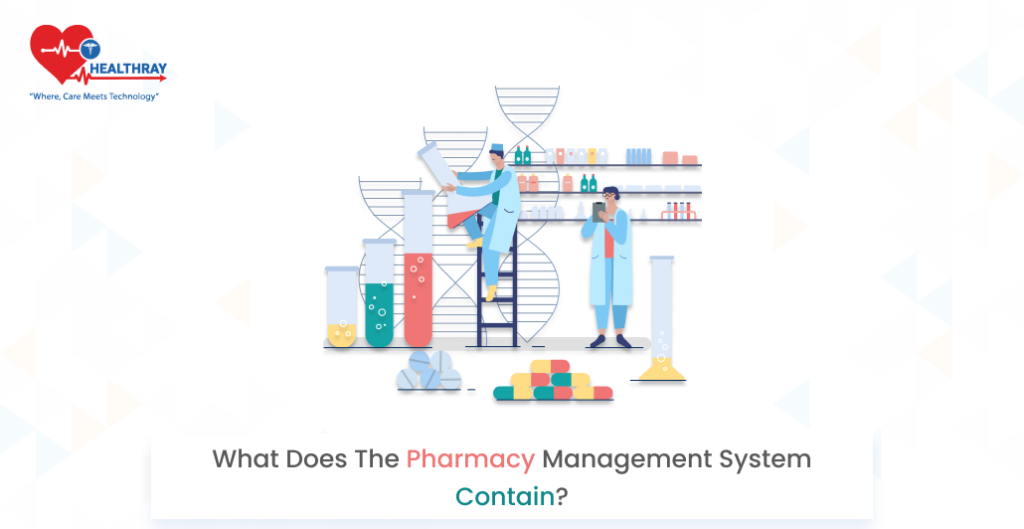
Inventory management
Pharmacies need to precisely track and manage inventory and levels to manage expenses and run effectively. Together with order creation, electronic transmission, and inventory receiving, this feature should ideally incorporate real-time inventory tracking.
Inventory management software should support multiple inventory centers, ambulatory and retail pharmacies, and seamless supplier connections through Electronic Data Interchange (EDI) interfaces. Inventory reports ought to be thorough and adaptable to satisfy the unique requirements and patient demographics of various pharmacy systems. Hence this in-depth knowledge makes planning, managing costs, and maintaining lean inventories easier—all of which reduce capital locked up in inventory.
Workflow systems
It’s critical to have a smooth integration of robotic systems into the operational workflow of pharmacy benefit managers, given the increasing utilization of automated dispensing systems in pharmacies. Automation, workflow, and active management are all incorporated into a single, cohesive architecture by pharmacy workflow software. Prescription dispensing will be more accurate and efficient thanks to a workflow system that will group and track orders from the point of entry to the end of the sale. To better assist patients, pharmacy staff can also rapidly obtain prescription data.
Interactive Voice Response (IVR) systems
IVR systems offer comprehensive solutions for managing phone handling and pharmacy operations. IVR systems have several functions, such as text-to-speech capability for independent pharmacies, prescription status updates for patients, and pharmacy call answering.
Market overview of hospital pharmacy management system
The hospital pharmacy management system display was valued at USD 5237.56 million in 2021, and by 2027, it is projected to grow at a compound annual growth rate (CAGR) of 11.63% to reach USD 10136.11 million.
A pharmacy management system automates and enhances every required pharmacy procedure. Comfort was a priority when designing the setup. One fair tap is all it takes to access it, which expedites exchange procedures and increases benefit. Therefore preparing new prescriptions is made simple by the pharmacy information system software, which also maintains track of the pharmaceutical inventory held by the pharmacy and doctor.
The report gives a comprehensive outline of the Pharmacy Management System publicize, covering its essential aspects by combining in-depth quantitative and qualitative investigation. It goes from a macro overview of the market’s appraise, industry chain, and stream to little scale points of interest of promote areas by sort, application, and locale.
In expansion to presenting industry players based on advertise share, concentration proportion, and other components, the report gives a point by point description of the best companies to assist readers get it the competitive scene and their rivals. Hence in addition, the impacts of COVID-19, rising showcase patterns, mergers and acquisitions, and regional conflicts will all be considered.
Hence to begin with, everybody included within the industry, planning to enter the advertise, contributing, researching, consulting, business strategists, or with any kind of stake ought to read this consider.
What are the elements propelling the pharmacy management system market’s expansion?
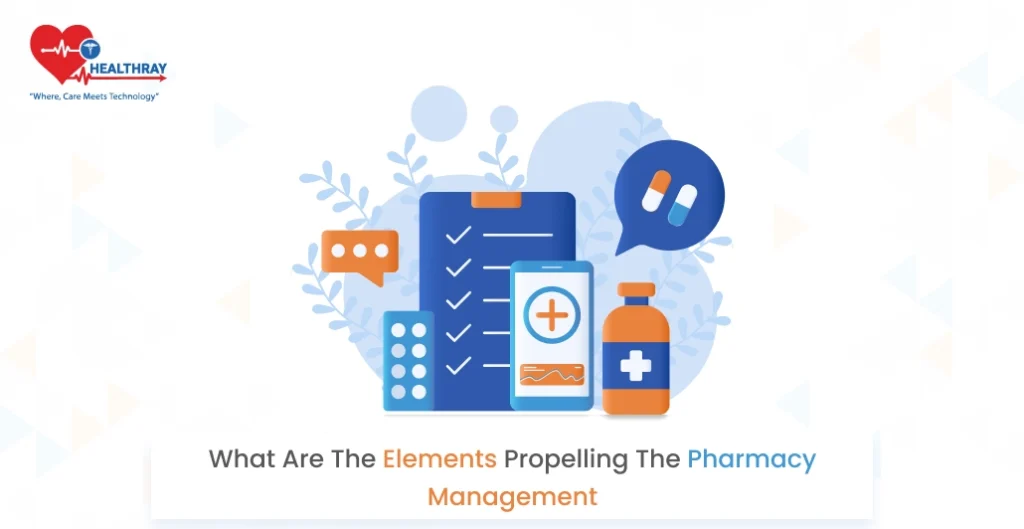
Technological Advancements
Hospital pharmacy management system have advanced thanks to technological developments in healthcare IT solutions. These systems have experienced substantial changes, adding cutting-edge functionality to optimize several hospital and pharmacy operations. Electronic prescribing systems have replaced traditional paper-based prescriptions to reduce errors and increase efficiency, allowing healthcare doctors to communicate prescriptions to pharmacies electronically. Furthermore, inventory management modules in pharmacy management systems use RFID and barcode scanning to precisely track medicine supply levels, reducing waste and stockouts in specialty pharmacies.
Integrating machine learning (ML) and artificial intelligence (AI) algorithms has improved the capabilities of pharmacy management systems. AI-powered algorithms analyze large-scale data to reveal patterns in a patient’s medication history, preferences, drug usage, and inventory forecasts. Moreover it helps pharmacies minimize the expenses associated with surplus inventory, guarantee the availability of necessary pharmaceuticals, and optimize inventory levels. Additionally, to improve patient safety and care, machine learning algorithms can find trends in patient data to spot possible drug interactions or adverse reactions.
Regulatory Compliance Requirements
The healthcare sector functions intensely regulated, subject to rigid compliance requirements upheld by regulatory agencies like the and HIPAA. With their comprehensive capabilities for documentation, security measures, medicine treatment administration, and record-keeping, pharmacy management systems are essential for guaranteeing adherence to these regulations. For instance, by HIPAA requirements, these systems maintain careful records of medicine orders. Moreover they also handle apportioning operations and understanding data, guaranteeing persistent privacy and information security.
Pharmacy management frameworks provide capabilities. These capabilities make it easier to follow FDA rules on labeling and dispensing medications. These systems ensure compliance with FDA labeling controls. They create exact pharmaceutical names. Moreover these names incorporate significant data such as dose directions, notices, and termination dates. Pharmacy management systems have built-in shields. They ensure precise drug administration and anticipate dispensing blunders, which lowers the chance of regulatory breaches and persistent harm.
Emphasis on Patient Safety and Care
The healthcare industry prioritizes patient safety and care, which motivates the utilize of sophisticated pharmacy management systems. These hospital pharmacy management system have built-in features to increase understanding results and reduce blunders. They also progress pharmaceutical adherence and security. For instance, barcode checking innovation ensures medication orders are accurate. It guarantees the proper drug is administered to the correct patient at the right dose.
The healthcare industry prioritizes patient safety and care, which propels the utilize of sophisticated pharmacy software. These systems have built-in highlights to increase patient outcomes, diminish errors, and progress pharmaceutical security. Barcode checking innovation ensures the proper drug is administered. It verifies medication orders for correct understanding and dosage.
Healthray’s Expertise in Pharmacy Management Software
Utilizing years of encounter and imagination, Healthray is at the forefront. They offer cutting-edge pharmacy management software arrangements that revolutionize drug management procedures in healthcare systems. Healthray makes profoundly configurable pharmacy management software planned to fulfill the requests of pharmacies, clinics, and pharmaceutical manufacturers. The company is altogether aware of the changing needs of healthcare facilities.
Healthcare suppliers can progress patient care with Healthray’s pharmacy management software. It offers an extensive feature set that incorporates automated dispensing, inventory management, electronic medicines, and real-time analytics to streamline operations. Moreover Healthray incorporates cutting-edge innovation. This includes machine learning (ML) and artificial intelligence (AI) calculations. These technologies maximize pharmaceutical mistakes, improve inventory estimating exactness, and streamline pharmaceutical management strategies.
Healthray’s pharmacy management software boasts strong regulatory compliance features. These ensure adherence to industry norms like HIPAA and FDA laws, safeguarding patient privacy and medication safety. With Healthray’s experience and commitment to innovation, healthcare organizations may improve patient outcomes. They can also reduce operating expenses and manage medication workflows more skillfully in the ever-evolving healthcare landscape.
Conclusion
Technology improvements, regulatory compliance, and an unwavering commitment to patient security and care are set to create a transformational environment. This will greatly impact hospital pharmacy management system in 2024. These arrangements will optimize inventory management, diminish blunders, and change sedate workflows through AI, ML, and modern analytics. Clinic pharmacy management systems must embrace cutting-edge features. However these features are outlined to fulfill changing healthcare requests, understanding results better, optimizing workflows, and ensuring smooth compliance with controls. As the healthcare industry changes. These systems will become crucial assets in the battle for superior pharmaceutical care and patient-centered benefit delivery.
